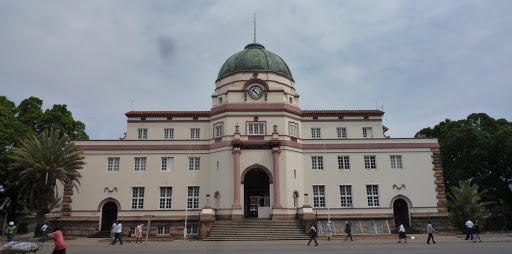The High Court has prohibited the Bulawayo Polytechnic from imposing an unlawful and incomprehensible requirement that its students pay tuition fees entirely in US dollars (USD), according to the Zimbabwe Human Rights Lawyers (ZLHR).
This ruling came after ZLHR took the matter to court, which resulted in the nullification of Bulawayo Polytechnic’s “costly” demand, which was not only forcing students to pay tuition fees in US dollars but also preventing those who had paid fees in the local ZWL currency from attending lectures and accessing the institution.
Early this year, students at Bulawayo Polytechnic received a memorandum requiring them to settle their fees in USD, which violates the government’s policy that states no service provider may require anyone to pay for services solely in foreign currency, but people are free to pay in any currency they prefer in the multi-currency country basket.
Read: https://cite.org.zw/bulawayo-polytechnic-students-protest-usd-fees/
One of the affected students, Denford Prosper Gudukani Sithole, recently engaged ZLHR lawyers Jabulani Mhlanga and Prisca Dube who filed an urgent application at Bulawayo High Court after he was barred from accessing the academic institution’s facilities by the institution’s authorities on January 24, 2024 when he presented his proof of payment to continue with his studies and obtain a gate pass.
According to ZLHR, Sithole was advised to obtain a return of his ZWL payment made to Bulawayo Polytechnic and then pay the tuition fees in USD.
“In the urgent application, Sithole argued that the refusal to accept payment for tuition fees in ZWL by Bulawayo Polytechnic was ultra vires as there is no statutory provision that allows for exclusive payment in US$,” said ZLHR in a statement.
Sithole argued that the demands by Bulawayo Polytechnic were illegal as they violated section 7(1) of the Exchange Control (Exclusive Use of Zimbabwean Dollar for Domestic Transaction) Regulations 2019, S.1 212 of 2019 as amended by section 2 of the Exchange Control (Exclusive Use of Zimbabwean Dollar for Domestic Transaction) Regulations 2020, (No.3) S.185 of 2020.
“In addition, Sithole stated that Bulawayo Polytechnic’s conduct violated a directive published by the Permanent Secretary for the Ministry of Higher and Tertiary Education, Innovation, Science and Technology Development dated 3 January 2024, which was made in terms of section 7(1)(a) of the Manpower Planning and Development Act, and directing the acceptance of fees in ZWL at the equivalent interbank rate prevailing on the date of payment,” ZLHR said.
The civil engineering student argued the conduct of Bulawayo Polytechnic authorities was inconsistent with the right to administrative justice enshrined in Section 68 of the Constitution as read together with Section 3(1)(a) of the Administrative Justice Act, said ZLHR.
“This offending conduct violated his right to further education guaranteed in Section 75 of the Constitution. He contended that Bulawayo Polytechnic College had no legal authority to demand payment of tuition fees exclusively in US$ bearing in mind Zimbabwe’s current monetary policies and that his failure to attend lessons had hampered his preparations for the end of third-semester examinations, which are set to commence in March,” said the human rights organisation.
“The demand by Bulawayo Polytechnic, Sithole argued, amounted to manipulation and arm twisting demand so as for him to continue with his education.”
Through its lawyers Mhlanga and Dube, ZLHR obtained a High Court order granted by Justice Nokuthula Moyo, who ordered Bulawayo Polytechnic to “stop the pervasive practice of demanding, charging tuition fees and any other levies or payments due exclusively in US$.”
“The High Court granted the academic institution to credit students’ accounts in ZWL as payment towards tuition fees at the prevailing interbank rate, enable them to attend lectures and have access to other institutional facilities at Bulawayo Polytechnic necessary for the furtherance of their education,” ZLHR summed.

